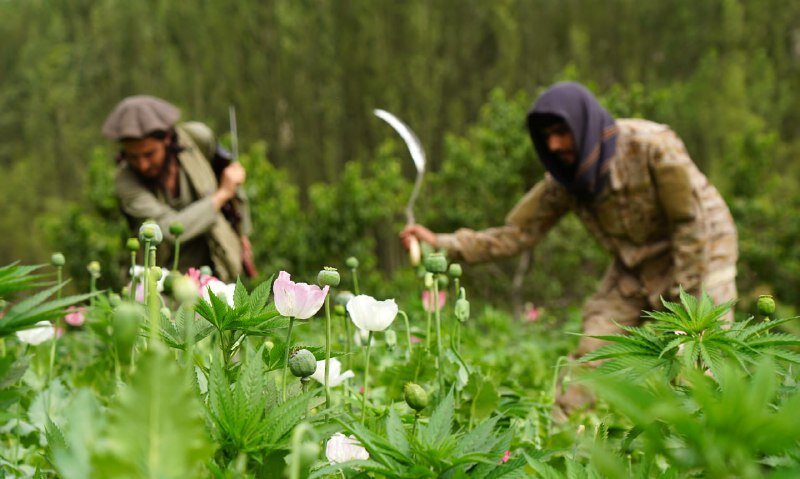The end of Opium

TEHRAN- The interim government of Afghanistan has taken effective measures to prevent the production of opium in the country. But that could bring about some economic challenges for the Taliban in the future.
On July 19 around 12 am local time, Taliban’s forces arrived in an area full of farms in the Khash district, in the province of Badakhshan, while riding their Toyota cars.
According to new laws passed by Afghanistan’s acting government, farmers are no longer allowed to cultivate cannabis and poppy.
Afghanistan’s acting Deputy Minister of Interior for Counter Narcotics dispatched a number of soldiers to the vast poppy farms in Badakhshan from the capital Kabul to oversee the destruction of tens of acres of land.
These soldiers were divided into two groups, one led by Maulvi Shafiq and the other by Maulvi Shoja.
To prevent any major conflicts, the soldiers proceeded to notify the farmers about the destruction orders prior to taking action. But the farmers strongly objected to ceding their farms, which led to a heated discussion.
The Taliban commanders tried their best to explain the government’s orders, warning the farmers that the soldiers were only trying to get rid of the farms where locals had illegally planted opium and Hashish.
It is pretty easy to get rid of these plants as they can be rooted out without much labor. The Taliban soldiers with their big scythes and long sticks managed to eradicate every poppy and cannabis crop in no time.
After about four hours, the soldiers were done with their mission, ready to head back to Kabul with a report on how the destruction had been carried out.
The Taliban had previously warned farmers about illegal actions and crimes.
The United Nations Office on Drugs and Crime reported on Sunday, November 5 that opium cultivation in Afghanistan decreased by 95% in 2023.
The report stated that opium cultivation in Afghanistan had decreased from 233,000 hectares to about 10,800 hectares.
Although the preventive actions of the Taliban are admirable and herald well for the young generations of Afghanistan, the sheer objection of the Afghan farmers planting opium and their subsequent shock with the destruction of their farms show that the Taliban might have been able to solve one big challenge, but is likely to face new ones in the future. That’s because lots of Afghans rely on the production of opium to make ends meet.
It seems that Afghanistan's economy has an uncertain future ahead.
We should wait and see what plans Afghanistan's rulers and international organizations such as the United Nations Office on Narcotic Drugs and Organized Crime have, in order to support Afghan farmers and introduce alternative options.
Leave a Comment